A home should be a safe and comfortable space—not hazardous to your furry friend. Unfortunately, the average home contains at least 62 toxic chemicals, and a pet’s natural curiosity and unique physiology increase their risk of exposure. Lebanon Animal Hospital wants to help you recognize potential toxins that could put your pet at risk with this pet toxin home tour.
Kitchen pet toxins—recipe for disaster
Pets are like family, and their near-human status can lead some pet owners to feed them like family. Although their intentions are loving, the results may be deadly. Dogs and cats simply cannot tolerate certain foods, and should never be fed any amount of the following:
- Chocolate, especially bitter and dark chocolate
- Grapes
- Raisins
- Avocado
- Onion
- Garlic
- Yeast dough
- Xylitol, which is an artificial sweetener found in many candies, baked goods, and peanut butter
- Alcohol
In addition to food, the kitchen may contain toxic chemical products such as drain, window, or surface cleaners, bleach, and ammonia products. Cleaners labeled as “green” or “natural” may still contain toxic compounds, so always read the label.
Although not toxic, we want to also mention boutique, exotic, and grain-free pet foods. Instead of traditional ingredients, these foods contain grain alternatives, such as peas, lentils, or sweet potatoes. The Food and Drug Administration is investigating a possible link between these foods and heart disease development in dogs. Although a new Tufts University study indicates that peas may be the culprit, a clear cause has not yet been identified. To be safe, steer clear of grain-free and other fad foods when choosing a diet for your dog.
Protect your pet in the kitchen
Store potentially dangerous foods in high cabinets or away from the counter’s edge. Confine or supervise pets during gatherings and parties to prevent them from stealing food or your well-meaning but unknowledgeable guests from giving them table scraps. Alcoholic drinks should be covered and not left unattended.
Cleaning products should be kept in their original containers with tight-fitting lids. Spills should be cleaned up immediately. Damp rags or cleaning sponges should be kept out of reach.
The medicine cabinet and pets
The truth is, many people don’t keep their medications in a cabinet any more, which may be to blame for the surge of over-the-counter and prescription medication toxicities in pets. The most common medications ingested by pets include:
- Anti-inflammatories, such as ibuprofen and naproxen
- Cold and flu medications containing ingredients such as pseudoephedrine and acetaminophen
- Antidepressants, including tricyclics and benzodiazepines
- ADHD and ADD medications
- Anticonvulsants
- Cardiac and blood pressure medications
- Vitamins and minerals
Medications are incredibly dangerous to pets. The difference between human and pet body weight means a single human-strength tablet is an overdose for pets, who commonly ingest multiple pills. Pets should never be given any medication, human or otherwise, without veterinary approval.
Protect your pet from medications
- Never store medication in plastic bags or leave loose pills on a nightstand or counter where curious pets can find them.
- Keep pill organizers out of reach, as pets may find the rattling sound, color, and shape appealing to play with or chew on.
- Store bags and purses that may contain pill bottles away from pets.
- Do not store pet medications near human medications to prevent mix-ups.
Garage and Basement Toxins
The garage and basement may be frequently overlooked because of inactivity, but these spaces can be hotbeds for pet hazards.
- Home repair items — Ingestion of paint, primer, adhesives, spackle, putty, and expandable foams such as Gorilla Glue by your pet should be considered an emergency.
- Antifreeze — Ethylene glycol has a sweet smell that is irresistible to pets, but causes acute kidney failure and death.
- Rodenticide — Rat and mouse bait can be a “set it and forget it” scenario, leading to unforgettable tragedy when pets discover the flavored granules or blocks. These poisons can cause clotting disorders, brain swelling, or kidney failure.
- Insecticides — Bug spray, ant spray, and other insecticides should not be sprayed or applied while pets are present.
Protect your pet in the garage and basement
Store all chemicals and cleaners in tightly closed containers inside a cabinet or on a shelf. Clean up any leaking fluids or spills immediately. If rodenticide must be used, place the traps in areas inaccessible to pets, check them regularly, and keep all product packaging—knowing exactly what a pet consumed saves time in an emergency.
Toxins in the garden or sunroom
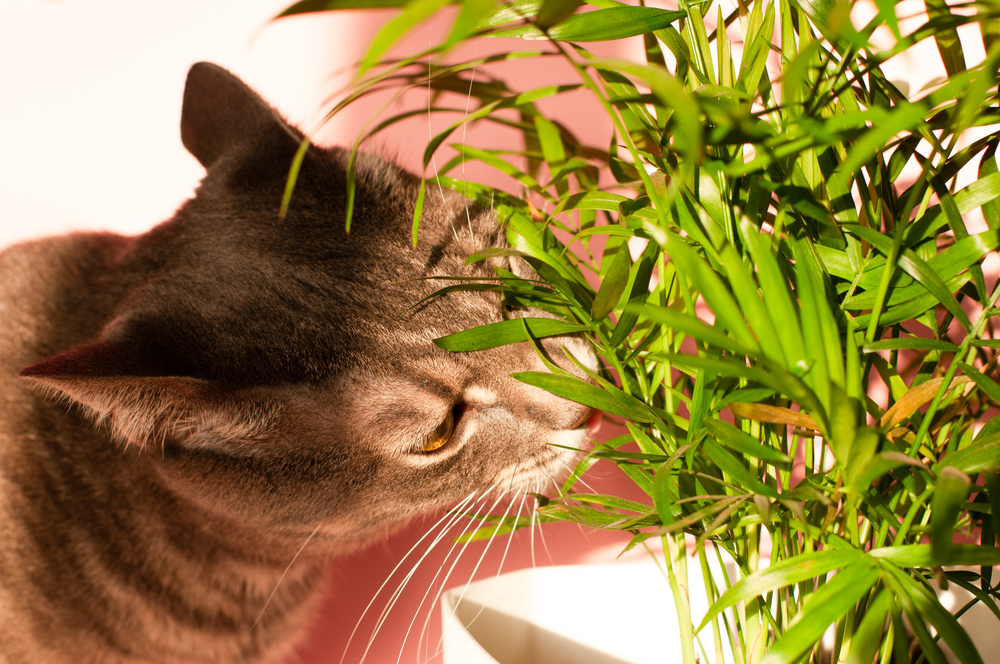
Pet lovers are a caregiving bunch, and many enjoy gardening, landscaping, and house plants. While pets may appreciate your jungle-vibe, they may also nibble on these toxic items:
- Fertilizer
- Compost
- Lawn chemicals
- Cocoa bean mulch
- Poisonous plants
-
- Reactions to plant ingestion can range from mild to fatal, depending on the plant and how much is consumed.
- Lilies are highly toxic to cats, and they can suffer kidney damage or death from ingesting any part of the plant or the water from a vase.
- Visit the ASPCA Toxic and Non Toxic Plant List to look up the plants in your home.
Protect your pet in the garden
If your pet likes to sample greenery, use only non-toxic plants or keep your plants away from your pets. Store gardening supplies and lawn care items in a shed or garage, and keep pets away from treated areas.
Like children, pets must be protected from the environment and their own curious nature. By taking a closer look at your pet’s surroundings with an eye for potential toxic hazards, you will ensure your home remains sweet, and not scary.If you know or suspect your pet has been exposed to a toxin, call Lebanon Animal Hospital or the ASPCA Animal Poison Control Center immediately.



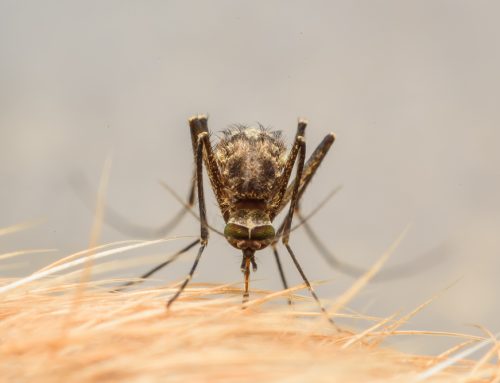
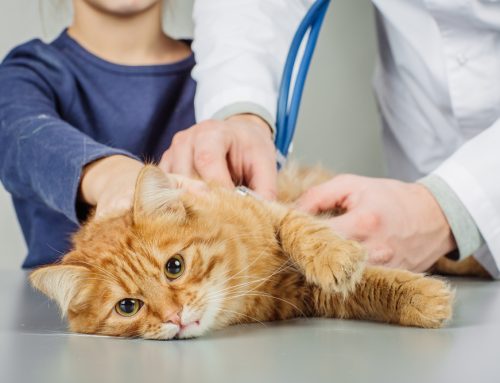
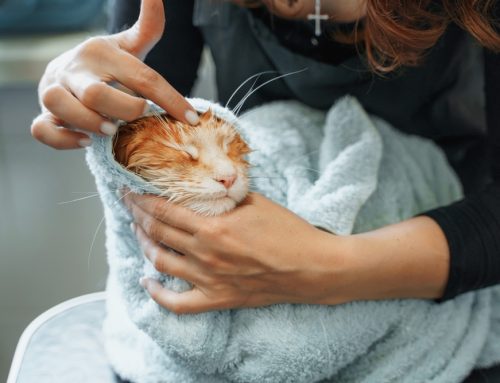
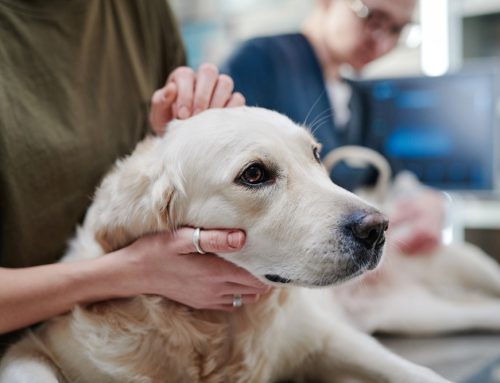
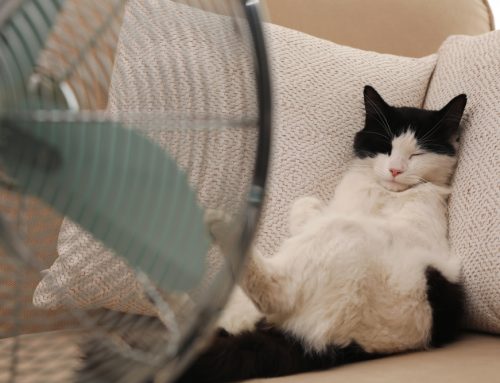
Leave A Comment